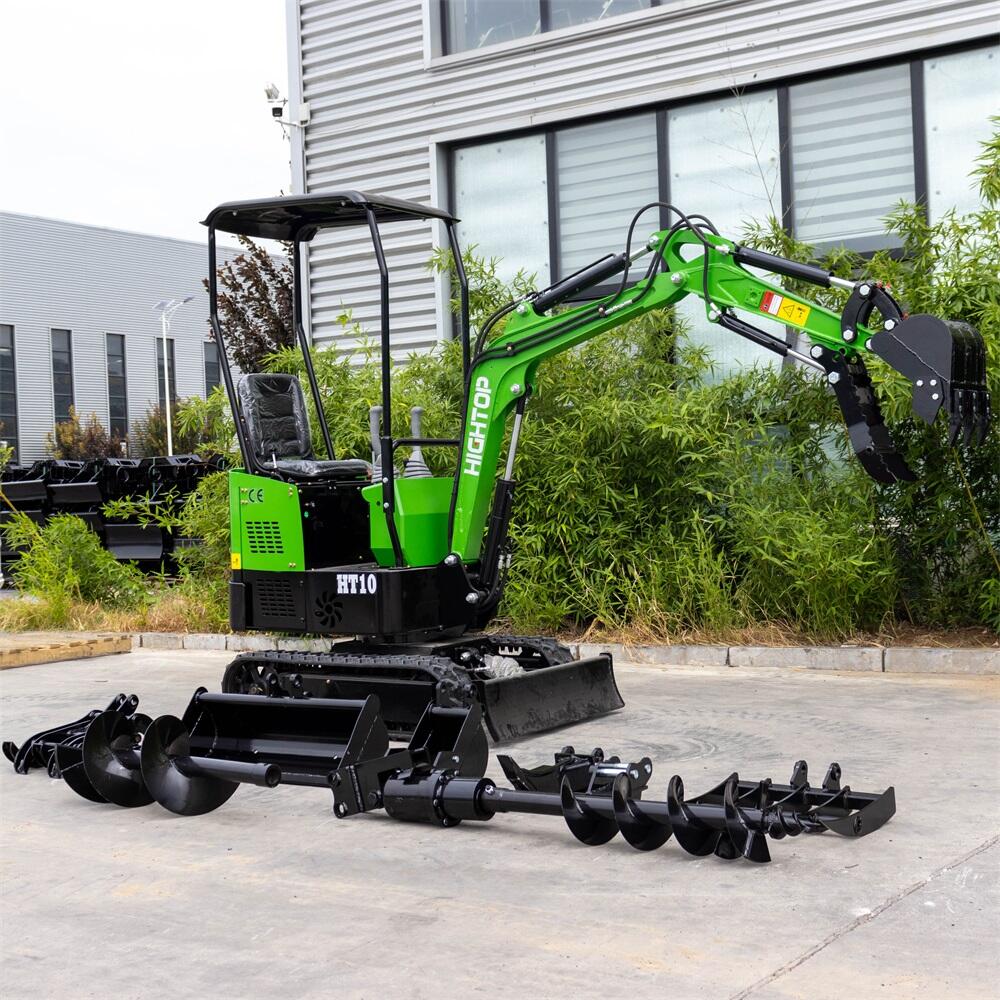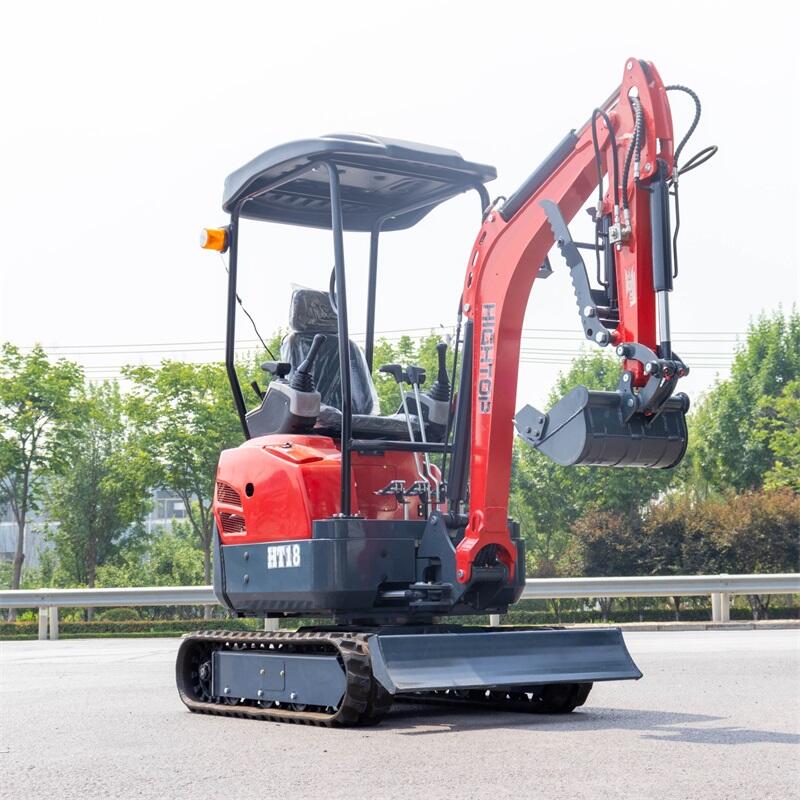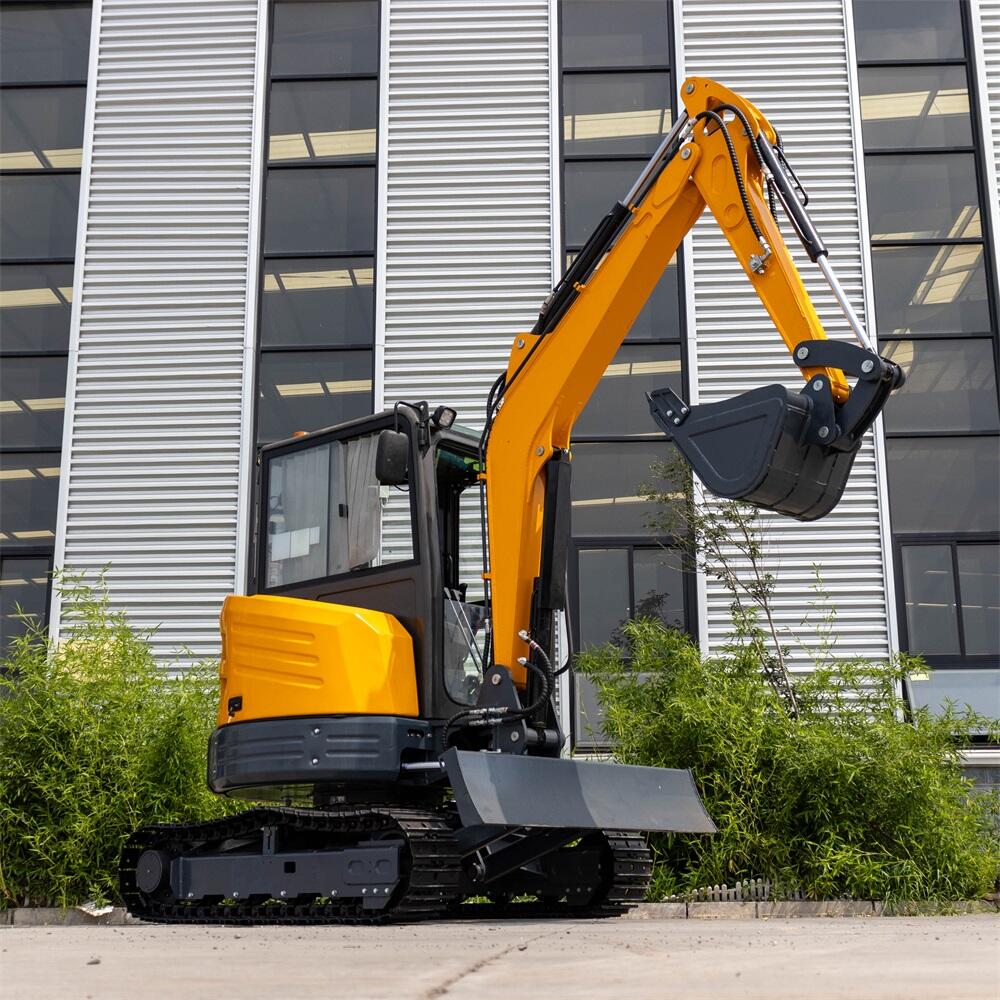Compact Excavators: Mastering Efficiency for Small-Scale Projects
Why Compact Excavators Excel in Small-Scale Projects
Maneuverability in Tight Spaces
Compact excavators were made with tight spaces in mind, so they can move around narrow alleys and crowded job sites where bigger equipment just won't fit. They have a really tiny size and turn on a dime, which means these little machines can get into spots that would otherwise require people to do the work manually. For instance, imagine trying to dig around foundation walls in a city lot without one of these compact models. The reduced need for hand digging saves time and money while getting things done right the first time. Operators find themselves finishing projects faster because they don't waste hours moving obstacles out of the way or struggling to position heavy machinery in awkward locations.
Multi-Functional Capabilities
Small excavators are incredibly versatile because they can take on different attachments like buckets, augers or even grapples depending on what job needs doing. What makes these machines so useful is their ability to handle all sorts of work from basic digging to heavy lifting, land grading, and even light demolition tasks. Contractors find themselves needing fewer separate pieces of equipment when working on site which cuts down costs and saves precious hours during projects. The quick switch system for changing attachments has become a game changer in recent years. Most experienced operators will tell anyone who asks that being able to swap out tools without stopping the machine keeps operations running smoothly throughout the day.
Cost-Effective Operation
Compact excavators really stand out from the financial standpoint because they require much less money upfront and run cheaper than bigger machines. They're easier for most contractors to get into the field with, plus they burn way less fuel which adds up to serious cash savings after months or years of regular use. For smaller jobs where budgets tend to be tight, this makes all the difference. A lot of construction companies report seeing around half their money back as ROI within just a few months of buying these little diggers. That kind of return helps keep operations running smoothly without breaking the bank on equipment costs.
Essential Features for Maximum Efficiency
Hydraulic System Performance
The hydraulic system in compact excavators makes all the difference when it comes to getting work done efficiently. These machines need hydraulics that deliver both speed and power for digging tasks and lifting heavy loads without breaking a sweat. When looking at actual parts, quality matters a lot. Good pumps and sturdy cylinders help keep equipment running smoothly day after day on construction sites. According to industry reports, machines with better hydraulic setups tend to boost productivity somewhere around 30 percent compared to standard models. That kind of improvement translates directly into fewer hours spent waiting for repairs and more time actually completing projects.
Engine Power and Fuel Efficiency
Having good engine power makes all the difference when an excavator needs to handle different jobs on site. Today's smaller excavators come with engines that give enough muscle for heavy work while still saving fuel, which cuts down on running costs and helps keep emissions low. The numbers back this up too research indicates that machines with these new engines burn around 15% less fuel than their predecessors from just a few years ago. For contractors looking to save money without sacrificing performance, upgrading to equipment with better engines simply makes business sense in the long run.
Attachment Compatibility
When it comes to compact excavators, having compatible attachments makes all the difference in getting the job done right. These machines can handle everything from digging trenches to breaking concrete when equipped with the right tools. Most equipment makers stock plenty of options these days too many folks don't realize just how interchangeable they really are between different models. Some companies even let workers switch between buckets, augers, and hydraulic breakers without much hassle. According to industry reports, construction firms that keep multiple attachment types on hand tend to get their machines working harder for longer periods. One contractor we talked to saw his team's productivity jump nearly 40% after investing in a good selection of attachments. That kind of adaptability turns small excavators into real workhorses across construction sites big and small.
Top Compact Excavator Models for Professional Use
HT10B 1-ton Mini Excavator
The HT10B 1 ton mini excavator really shines thanks to its robust engine and impressive hydraulic system, which many operators consider when choosing equipment for smaller jobs around town. Built with better handling in mind, this machine works wonders where space is tight something that landscape crews and contractors working on remodeling jobs appreciate greatly. What makes it even more convenient? The whole thing fits right through normal garden gates and house doors without any trouble at all. That kind of accessibility means homeowners tackling backyard improvements or urban builders working inside existing structures can get real value from this little workhorse.

HT18-3 1.8-ton Mini Excavator
The HT18-3 1.8 ton mini excavator packs quite a punch considering its compact frame, making it ideal for home improvement jobs as well as smaller construction sites. What really stands out is the hydraulic system which gives operators pinpoint control when working around sensitive areas, something that saves time and reduces mistakes on tricky jobs. Rental businesses love this machine because it holds up day after day without breaking down, which explains why we see so many of them on job sites from backyards to industrial parks. For anyone looking for a mini excavator they can count on, the HT18-3 delivers consistent performance whether digging trenches for plumbing or clearing debris after storms.

HT35 3.5-ton Mini Excavator
The HT35 3.5 ton mini excavator comes packed with solid features that work great for both medium sized jobs and bigger construction sites too. What makes this machine stand out is how it manages to pack all that power into something still easy to move around tight spaces. Many contractors have found that switching to the HT35 instead of going for full sized excavators actually gets the job done just as well while taking up way less room on site. Industry pros who've used these machines consistently mention faster completion times and better adaptability when conditions change during a project. For tough jobs where things need to be precise and dependable, the HT35 has become pretty much standard equipment among serious operators these days.

Choosing the Right Compact Excavator
Assessing Project Requirements
Getting clear on what needs to get done before selecting a compact excavator makes all the difference. When someone looks at their project's scale, what actually needs doing, and any special job requirements, they're better positioned to pick the right machine for the task. Ground conditions matter too - soft soil versus hard-packed earth changes things completely. How deep digging needs to go is another key consideration. Getting these basics right prevents buying something that won't work well later on. Many experienced operators create simple checklists when evaluating options. These help sort through the important stuff and avoid common mistakes. Taking this methodical approach cuts down wasted effort and increases chances of completing projects successfully because the chosen equipment matches exactly what the job calls for.
New vs. Used Equipment Considerations
Choosing between new and used compact excavators makes a real difference for budgets and how operations run day to day. New models tend to last longer and come packed with the newest tech features. On the flip side, buying secondhand can cut costs quite a bit sometimes saving around 30% off the sticker price. Anyone thinking about used machines needs to dig into their service records and take a close look at what shape they're actually in before making a decision. Money matters a lot for many buyers, so those big upfront savings are tempting. Still worth remembering though that cheaper isn't always better when it comes to breakdowns down the road and how long the machine will keep running without constant repairs.
Local Dealer Support and Availability
Going with a local dealer for a compact excavator purchase brings real benefits, especially when it comes to getting parts quickly, accessing service centers nearby, and receiving hands-on support that keeps machines running. Good local dealers typically offer stronger warranty coverage and full-service maintenance plans that actually make sense for long-term ownership costs. According to industry reports, companies working with trusted dealers see around 20% fewer days lost to equipment breakdowns because repairs happen faster. Beyond just fixing things when they break down, these relationships create a safety net for regular maintenance checks and emergency fixes during critical project timelines. Many operators find this kind of dealer relationship invaluable during busy seasons when every hour counts.

